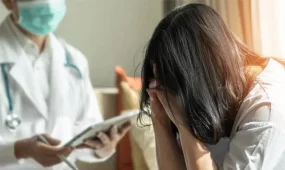Are you getting enough sleep?
What would you rate the quality of your sleep on a scale from 1-10 (1 being the worst and 10 being the best)?
Are you getting enough sleep?
Do you feel you have the energy you need during the day or do you find yourself sleepy and find it difficult to stay awake?
Depending upon how you answered those questions, you may not be getting enough sleep to not only function at your best, but to ward off more serious health risks in the long run. There’s been a lot of research pointing to all kinds of issues when we aren’t getting enough sleep.
Lack of sleep decreases our concentration and our reaction time. This damage can show up in an instant (such as in a car crash) or accumulate and harm us over time by contributing to health concerns such as obesity, diabetes, cardiovascular disease, depression and Alzheimer’s.
Matthew Walker, director of the Center for Human Sleep Science at Berkley, states, that after just one night of four or five hours of sleep, our natural cancer-killing cells drop by 70%.
His research of data found that 20 large scale studies report the shorter you sleep, the shorter your life. That’s a bold and unnerving statement, but it doesn’t mince words in emphasizing how critical our sleep is to our health.
Yikes! What constitutes sleep deprivation and why has it become “a thing”?
Scientists count anything less than 7 hours of sleep as sleep deprivation.
When you do not get your required amount of sufficient sleep, you begin to accumulate a sleep debt. The Centers for Disease Control states that a third of the adults in the United States report that they are not getting enough of the recommended amount of sleep.
What are the reasons that we are becoming more and more of a sleep-deprived society?
Looking over the course of the past 75 years, there has been a dramatic increase in those of us walking around with less than adequate sleep.
In 1942, less than 8% of the population was trying to survive on six hours or less sleep a night.
What are some of the reasons for this?
- More exposure to light during the night – light has been found to be a profound degrader of our sleep
- Increased time working/more demanding jobs/more shift work and greater employee accessibility which leads to expanding work-days & more stress– this can create less time overall, so when choosing between family/friend time or sleep, sleep is usually the thing that goes
- We may be a lonelier, more depressed society – this increase in stress/anxiety is contributing to sleep issues
- Alcohol & Caffeine intake – can wreak havoc on healthy sleeping patterns
- The perception that sleep is wasted time – therefore minimizing the importance and choosing other pursuits over our sleep
What can we do to improve our sleep and combat sleep deprivation?
- Avoid “all-nighters”
- Start shifting your perception of sleep as more of a priority, like working-out or your job
- Use an alarm to schedule your preparation and time to go to bed (in addition to one for waking you up)
- Go to bed and wake up at the same time every day
- Try to keep the same schedule of sleep every day, do not change it for weekends- limit the difference to no more than about an hour.
- Body clock’s sleep-wake rhythm is disturbed from staying up late and sleeping in late on weekends.
- Dim all house lights before bedtime
- When truly tired, go to sleep—pay attention to your body’s sleep cues
- Maintain quiet time before an hour to sleep. Avoid bright artificial light and strenuous exercise, from a TV or computer screen. The light may signal the brain that it’s time to be awake
- Avoid heavy or large meals and alcoholic beverages within a couple of hours of bedtime
- Avoid nicotine & caffeine as they are stimulants, and both substances can interfere with sleep. The effects of caffeine can last for as long as 8 hours in some people
- Keep your bedroom cool and dark
- Take a hot bath or use relaxation techniques before bed
- Certain foods and beverages that may help you fall asleep faster and sleep more soundly are whole grain bedtime snacks such as popcorn, oatmeal or whole-wheat crackers with nut butter. Nuts like almonds and walnuts contain melatonin which helps your sleep/wake cycle. Cottage cheese, caffeine-free tea, warm milk and certain fruits that have melatonin like tart cherries, bananas, pineapple, and oranges.
By following these tips, you can get into a better sleep routine and live a healthier and longer life!
Now go get some sleep!
Sources
Health Insiders relies on peer-reviewed studies, academic research institutions, and medical associations. We avoid using tertiary references. You can learn more about how we ensure our content is accurate and current by reading our editorial policy.
[1] Alhola P, Polo-Kantola P. Sleep deprivation: Impact on cognitive performance. Neuropsychiatr Dis Treat. 2007;3(5):553-567.
[2] Follow-up to Hartmann & Prichard: Should universities invest in promoting healthy sleep? A question of academic and economic significance







 This article changed my life!
This article changed my life!
 This article was informative.
This article was informative.
 I have a medical question.
I have a medical question.
 Ask a Question
Ask a Question

 This article contains incorrect information.
This article contains incorrect information.
 This article doesn’t have the information I’m looking for.
This article doesn’t have the information I’m looking for.